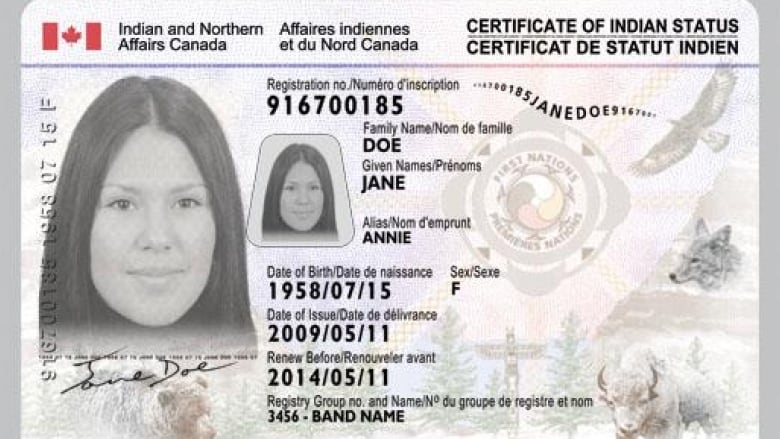Indigenous women on P.E.I. applaud changes to Indian Act
'It shouldn't be up to the government to decide who's an Indian and who's not an Indian'

Lalana Paul says changes to the federal Indian Act make her so excited she gets shivers.
"You see so much sexual discrimination, it's appalling that it's still in there," said Paul, a consultant with the Native Council of P.E.I.
The Liberal government says it will grant full legal status to all First Nations women and their descendants born before 1985, expanding the scope of its originally planned amendment that would have limited the timeframe to those born after 1951. The proposed amendment to a bill tabled in the Senate would also address all inequities created between 1869 and 1951.
Equal rights
The changes would give Indigenous women the same rights as Indigenous men. For example, women would no longer lose their status if they married a non-Indigenous person.
"I have the right to live a traditional and cultural life that I should be able to pass on to my kids," said Lisa Cooper, president and chief of the Native Council of P.E.I.
You see so much sexual discrimination, it's appalling that it's still in there.- Lisa Cooper
"It shouldn't be up to the government to decide who's an Indian and who's not an Indian."
Cooper said she's "ecstatic" that it means her granddaughter will be recognized as Indigenous.
But she also thinks the government needs to go further and extend rights to all Indigenous people whether they live on reserve or off.
"When you look at Trudeau saying 'decolonizing,' I'm discouraged by that," she said.
"He's cherry picking parts of the Indian Act, he's cherry picking parts of the UN Declaration on the Rights of Indigenous People. He's leaving out a huge portion of off-reserve, status, non-status, and Mtis.
"If you're going to decolonize, get rid of the Indian Act, get rid of the Indian Act chiefs, the Indian Act bands and then we're all Indigenous."
1.4 million eligible
Bill S-3 is expected to pass in Parliament in December. As many as 1.4 million people of First Nations descent would be eligible for status under the government's broadened plan.
The Mi'kmaq Confederacy of P.E.I. said it agrees with the changes, and is determining how many people on the Island would be affected.
"The First Nation governments on P.E.I. are fully supportive of the elimination of sex-based inequities in registration under the Indian Act," it said in an email to CBC News.
-
MORE P.E.I. NEWS | Anti-bullying P.E.I. potato travelling the world
-
MORE P.E.I. NEWS | Veterans Affairs says it's working to address concerns over long-term care












_(720p).jpg)


 OFFICIAL HD MUSIC VIDEO.jpg)
.jpg)



























































































